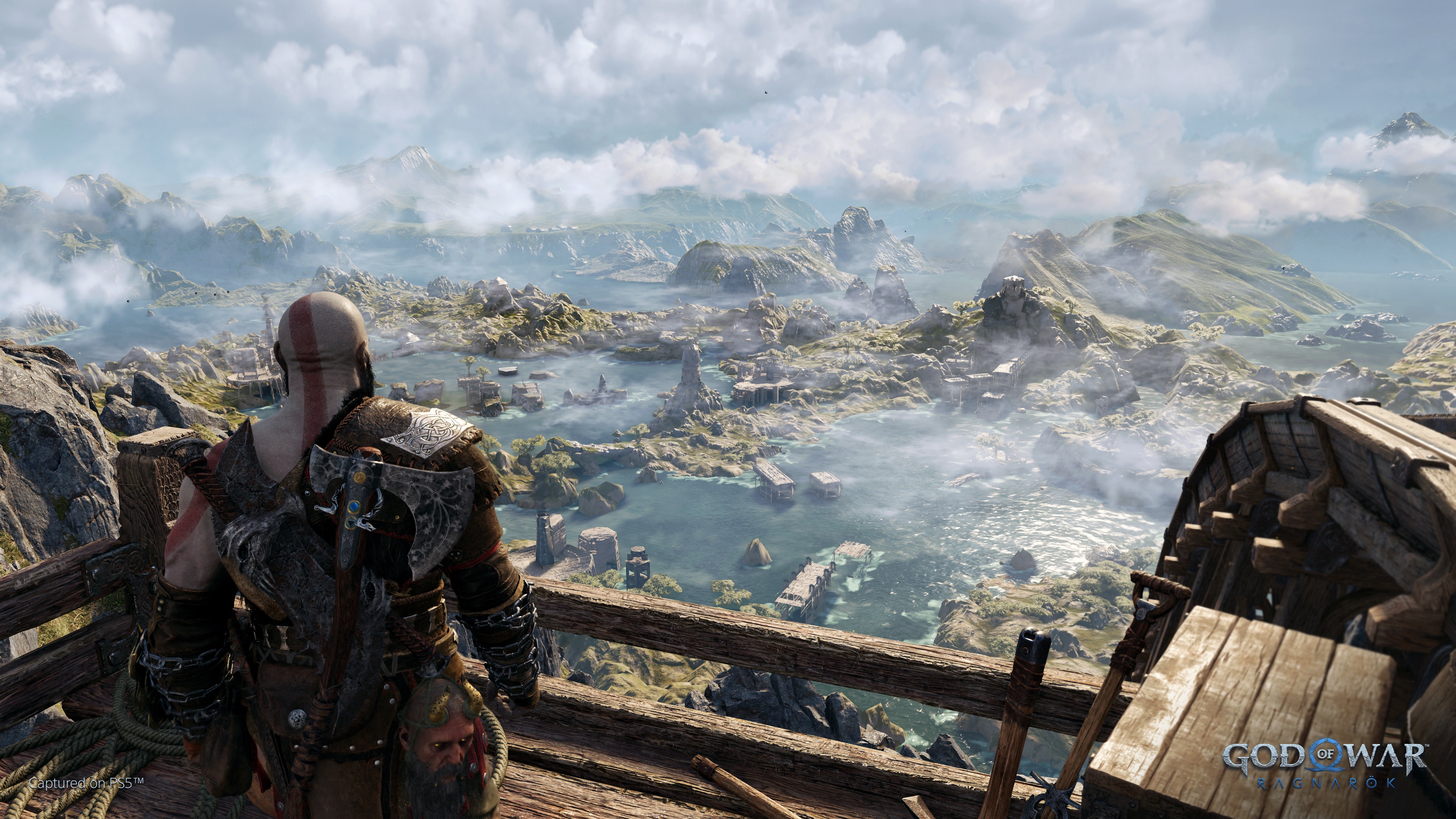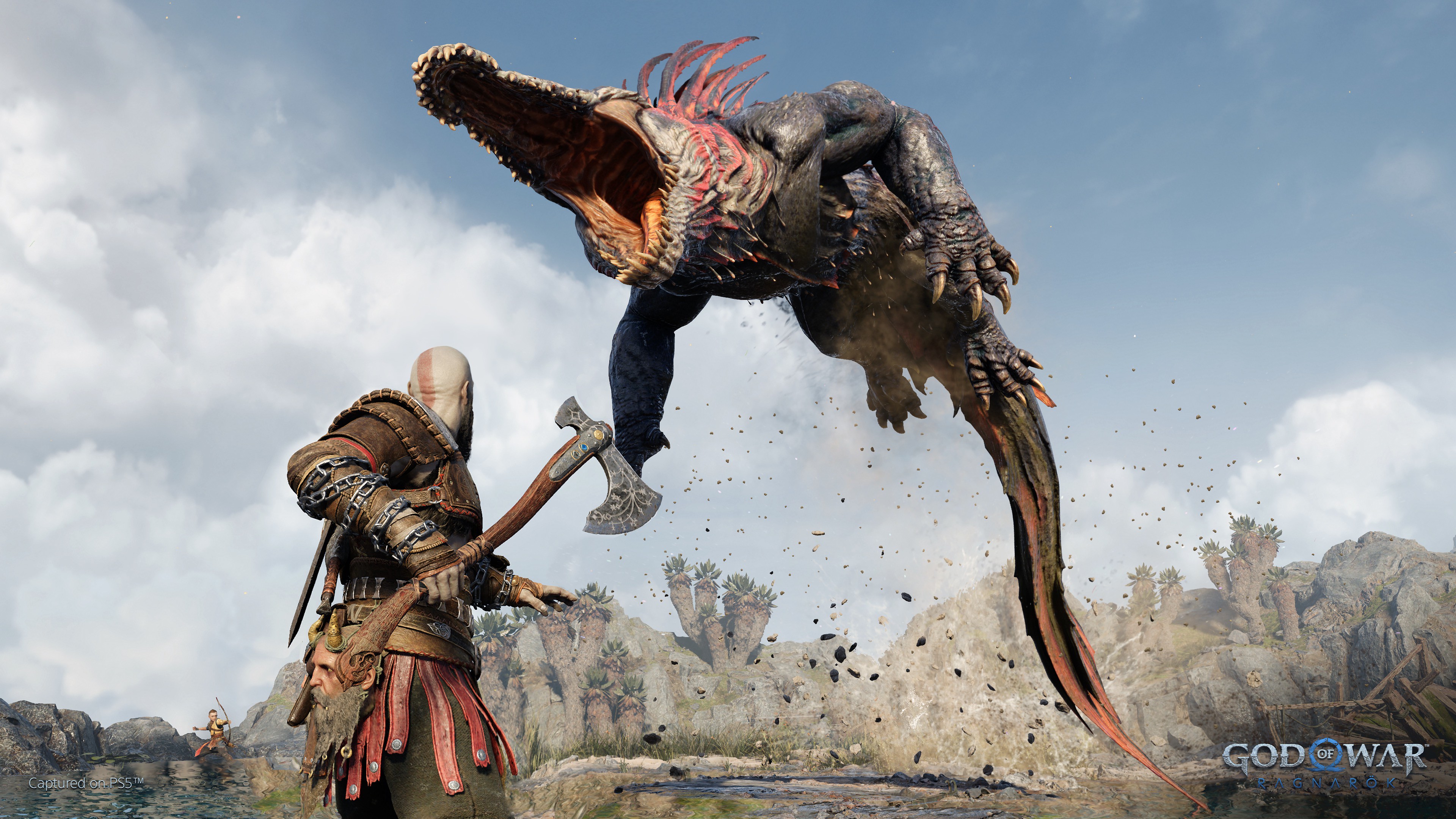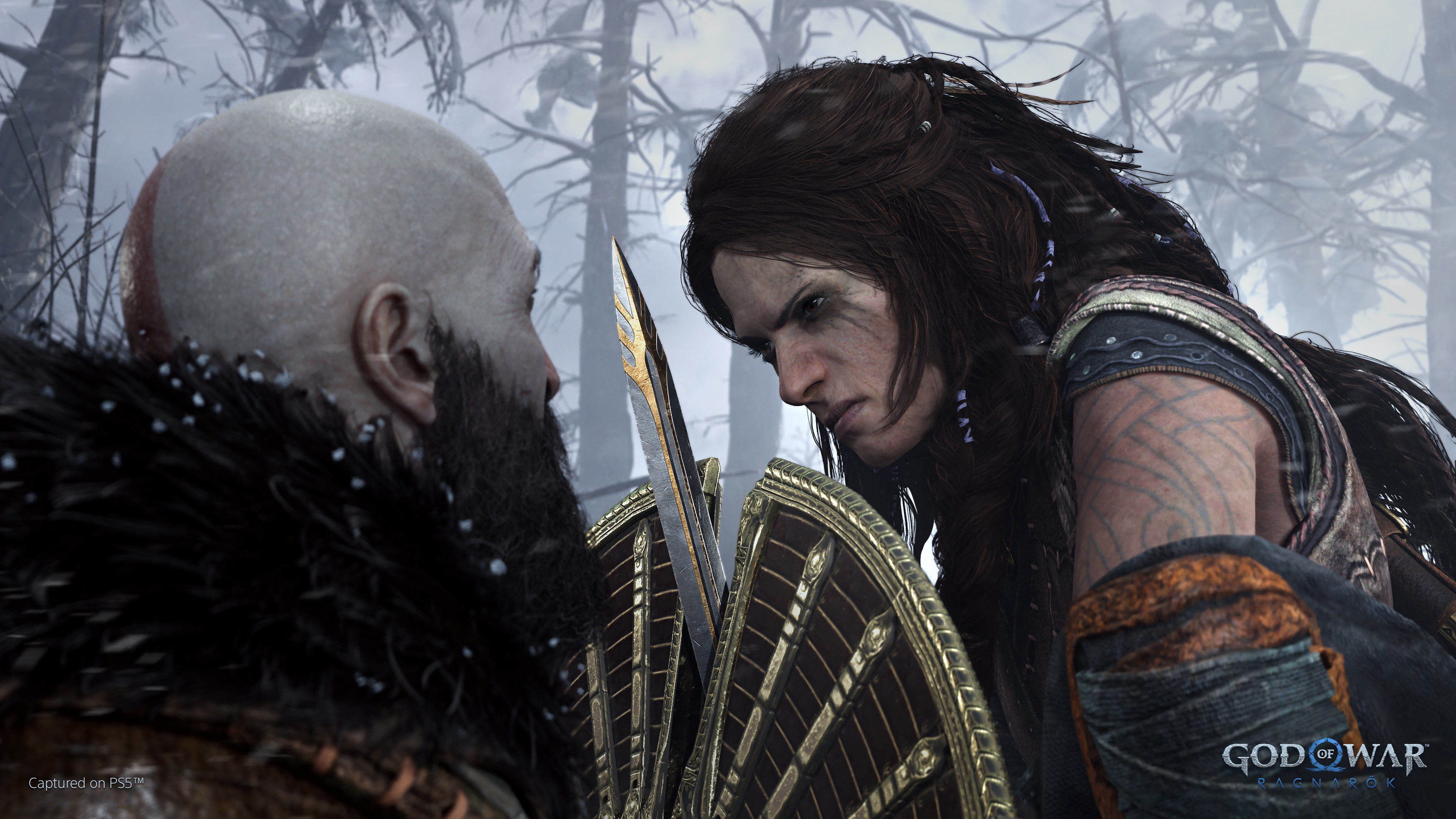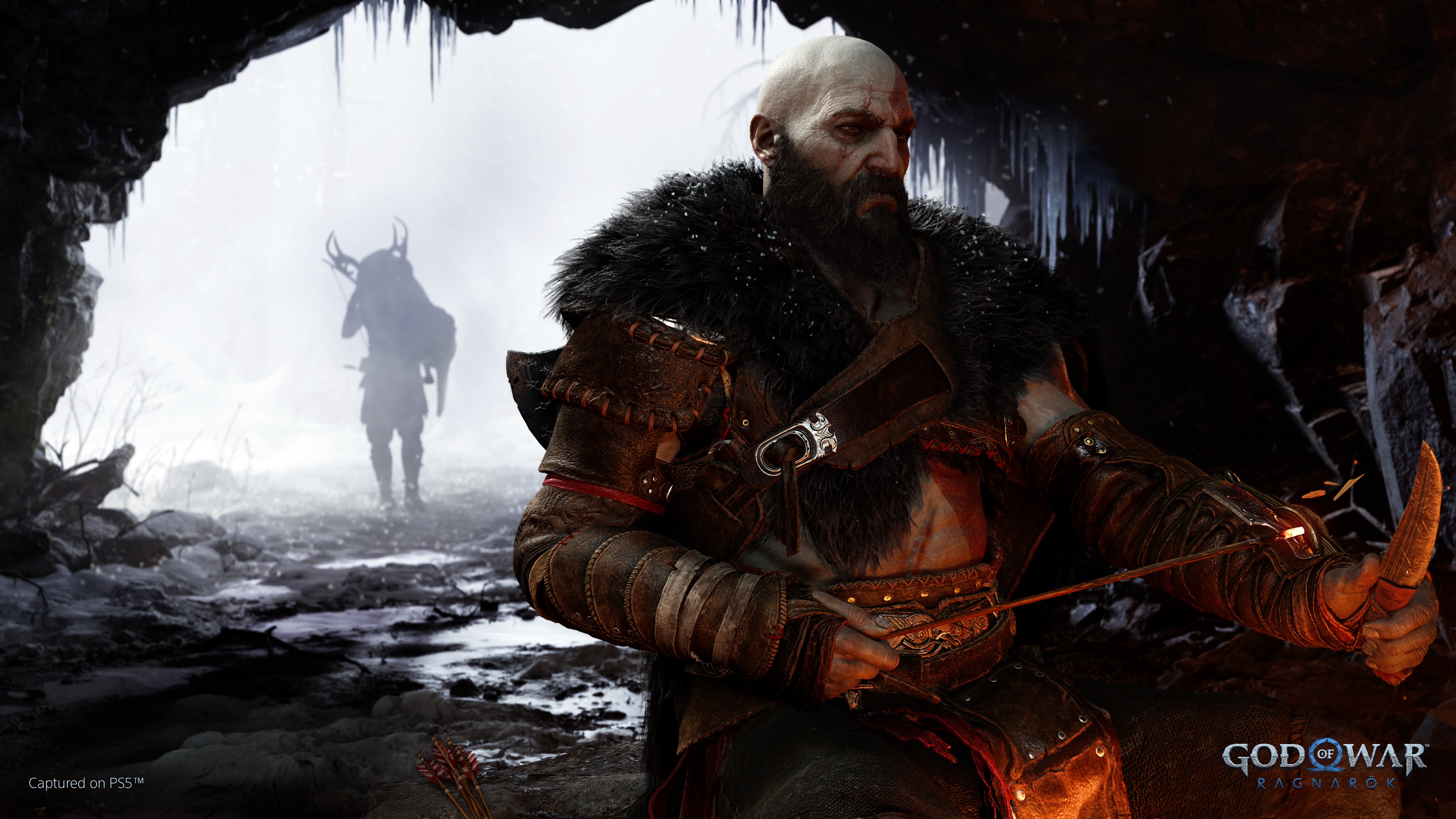God of War Ragnarok will end Kratos’ Norse arc, as it should
God of War Ragnarok will end the current story arc, and that's good

Here at Tom’s Guide our expert editors are committed to bringing you the best news, reviews and guides to help you stay informed and ahead of the curve!
You are now subscribed
Your newsletter sign-up was successful
Want to add more newsletters?

Daily (Mon-Sun)
Tom's Guide Daily
Sign up to get the latest updates on all of your favorite content! From cutting-edge tech news and the hottest streaming buzz to unbeatable deals on the best products and in-depth reviews, we’ve got you covered.

Weekly on Thursday
Tom's AI Guide
Be AI savvy with your weekly newsletter summing up all the biggest AI news you need to know. Plus, analysis from our AI editor and tips on how to use the latest AI tools!

Weekly on Friday
Tom's iGuide
Unlock the vast world of Apple news straight to your inbox. With coverage on everything from exciting product launches to essential software updates, this is your go-to source for the latest updates on all the best Apple content.

Weekly on Monday
Tom's Streaming Guide
Our weekly newsletter is expertly crafted to immerse you in the world of streaming. Stay updated on the latest releases and our top recommendations across your favorite streaming platforms.
Join the club
Get full access to premium articles, exclusive features and a growing list of member rewards.
God of War Ragnarok was one of the highlights of the PlayStation Showcase 2021, and every day brings us closer and closer to its 2022 release window. There’s never been a bad God of War game, so we have high hopes for Ragnarok — particularly since, as we now know, this game will end Kratos’ Norse myth arc. Whatever happens with the God of War series in the future, Ragnarok won’t get a direct sequel. And that’s fine, because based on past series entries, it probably doesn’t need one.
Judging by the positive response on social media, gamers are perfectly happy to let the story end in Ragnarok. Maybe it’s because they’ve been burned by trilogies before — and the God of War trilogy in particular. Frankly, a lot of stories work better as duologies than trilogies, and Kratos’ Norse adventures may be just one more example. If you’re satisfied with Sony’s decision, read on to find out why your feelings are justified. And if you were hoping for a trilogy, read on to find out why you might be better off embracing a shorter story format.
- Play the best PS5 games
- Also try the best PS4 games
- Plus: Xbox Series X may get 500GB expansion cards — but where’s the 2TB option?
(Significant spoilers for the existing God of War games follow.)
The trouble with trilogies

While I’m hardly the first person to point this out, it’s really hard to end a trilogy. Think about the great trilogies in pop culture: Star Wars, Lord of the Rings, Christopher Nolan’s Batman, The Godfather and so forth. Which of these had a truly standout third installment? To be brutally honest, which of them had a third installment that wasn’t considerably worse than the first two?
Even gaming trilogies tend to run out of steam by the last entry. Mass Effect, Dark Souls, Assassin’s Creed, Tomb Raider, Batman: Arkham and Age of Empires, among other series, tended to have stronger first and second entries. (Granted, some trilogies, such as Metal Gear Solid, The Witcher and Max Payne improved with time. Video games tend to handle trilogies better than books and movies; the “why” could probably be a whole separate article.)
God of War on the PS2/PS3 was no exception. The trilogy kicked off in style, with a brutal adventure that turned Greek myth on its head, and pioneered a combat formula that action/adventure games still employ today. God of War II had even stronger gameplay, and an even bigger scope for the story. In the second game, perpetually irate antihero Kratos faced off against Zeus, his father and the king of the Greek gods.
But then, God of War III ended with Kratos falling from the peak of Mt. Olympus and having to climb it all over again. While he faced off against a few different gods this time, the game’s structure, villain and stakes were almost identical to its predecessor. There’s a lot to like about God of War III from a gameplay perspective, but stretching the story for an additional game sapped a lot of its strength and immediacy.
Get instant access to breaking news, the hottest reviews, great deals and helpful tips.
A dwindling pantheon

Drawing out God of War’s Norse arc into a trilogy presents another potential issue: Kratos has already killed a lot of our favorite Norse gods, and he’s (presumably) going to kill a lot more of them in Ragnarok. In the first game, he tore his way through the Valkyries, a host of trolls, the king of the dark elves, Thor’s sons, and the beautiful Baldur himself.
In Ragnarok, Kratos will almost certainly face off against Thor and Tyr. Freya and Angrboda will probably play big roles in the story, and the traditional Ragnarok myth doesn’t end well for either one. And, of course, God of War (2018) spent a lot of time foreshadowing Odin as a cruel and belligerent king. If I were a betting man, I might put a little money on Ragnarok ending with Kratos and Odin tearing each other to metaphorical (and possibly literal) pieces.
In other words: once Ragnarok is done, there won’t be all that many Norse gods left to kill.
Granted, if Sony wanted to stretch out the Norse myth arc, it could repeat what it did in God of War II and III, by dividing the pantheon up between two games. But the downside of that approach was that we had to spend a lot of time fighting relatively minor deities along the way. I don’t think fans were absolutely dying for showdowns with Theseus, Perseus, Icarus, or Helios. (I could go either way on Hercules.)
Keeping the Norse myth arc focused on the most recognizable parts of the pantheon could also help avoid some of the issues the God of War Greek myth spinoffs ran into. Fighting Ares, Zeus and Gaia was a thrill; fighting Persephone, Thanatos and Alecto didn’t feel quite as epic.
Mythic possibilities

God of War (2018)’s director Cory Barlog explained that the current God of War story wouldn’t be a trilogy, primarily because Sony doesn’t want to make fans wait 15 years for a full story arc. If the Norse story wraps up in Ragnarok, that could mean one of two things. Either Kratos will complete his story arc by dying (for real, this time), or he’ll move on to another pantheon in the next game.
Alert God of War fans are aware that the series has already foreshadowed other pantheons, including the gods of Celtic myth, Egyptian myth, Japanese myth and Christianity. Egypt seems like the next logical location in which Kratos could commit deicide, but either way, the fact is that there are a lot of other pantheons to explore. The more time Kratos spends in the Norselands, the less time he spends elsewhere. If Sony’s ultimate objective is to bring Kratos all around the ancient world and encounter all the fascinating creatures and gods along the way, he can’t spend too long in one location.
(For what it’s worth: I’m positive that Kratos could square off against Horus without ruffling too many falcon feathers. I’m less certain that Sony would actually pit him against Jesus, for both reasons both theological and pragmatic. A grueling fight to the finish against a deity who calls himself “The Prince of Peace” seems unlikely.)
No matter what happens to Kratos in God of War Ragnarok, we should expect the series to go in a very different direction afterward. Whether that means retiring Kratos, shifting the focus to Atreus or simply changing the location is anyone’s guess. In the meantime, it might be a good idea to start brushing up on your Egyptian mythology.

Marshall Honorof was a senior editor for Tom's Guide, overseeing the site's coverage of gaming hardware and software. He comes from a science writing background, having studied paleomammalogy, biological anthropology, and the history of science and technology. After hours, you can find him practicing taekwondo or doing deep dives on classic sci-fi.
 Club Benefits
Club Benefits










